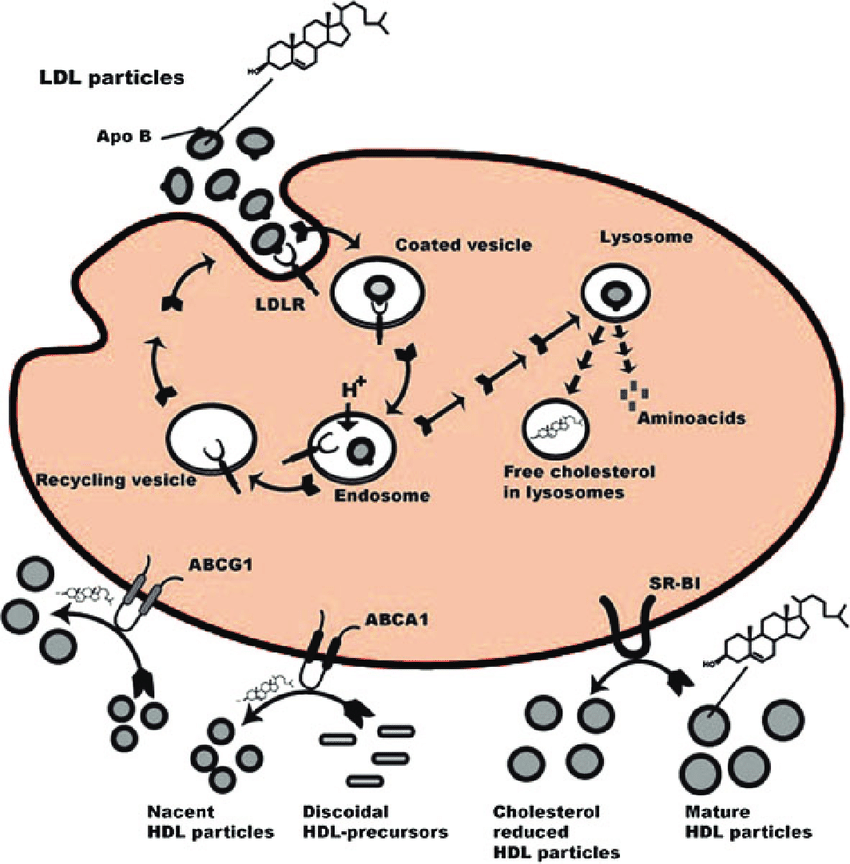The Secret To Cholesterol Control With Diet
Are you being told you have high cholesterol? Maybe you are looking at different ways to approach cholesterol control with diet. While there is sometimes conflicting information in the media about this, cholesterol control with diet is fairly straightforward to understand. With just a little bit of effort on your part, most people can control their cholesterol with diet. In this article, I will show you how to get a better understanding how to control your cholesterol with diet.
If you want to know the secret to cholesterol control with diet, keep reading.
The Impact of Cholesterol In Food
The first thing to understand about this topic is that cholesterol from the food you eat, doesn't contribute that much to the blood levels of cholesterol. In fact, most of the cholesterol that's in our bodies is generated internally from the cells and tissues of our bodies. That production is done through molecules found in fatty acids and carbohydrates. That molecule is called acetyl CoA. This molecule is used to generate energy as well as cholesterol. In cholesterol production, acetyl CoA goes on to make something called HMG CoA, and then on to make cholesterol. Statin drugs, prevent HMG CoA from being produced.
In the video above there is a diagram to show this in more detail. Statin drugs block the HMG CoA from making mevalonate or mevalonic acid. As you go further along the cholesterol production pathway you get, different intermediates, and eventually you get cholesterol.
Cholesterol Control With Diet
Now, I mentioned that acetyl CoA comes from fatty acids and carbohydrates. So you may be wondering why is it that saturated fats tend to increase cholesterol more than carbohydrates? The answer is more on the clearance or breakdown side of cholesterol, then the production. It turns out that saturated fatty acids directly inhibits or down-regulate the production of something known as LDL receptors. LDL receptors are on the surface of cells. These degrade circulating cholesterol as it is circulating through the body, through the blood, and in your tissues. So with less of these, there is less breakdown of the LDL cholesterol. With less breakdown, there's more circulating through the blood. Conversely with less circulating saturated, fatty acids, there's an increase in the LDL receptors and an increase in LDL cholesterol clearance from the body. Therefore the amount of LDL circulating through your blood goes way down. Here is a quick picture from this same article that I think is helpful.
So this is just a cartoon or diagram that shows how LDL cholesterol is cleared. The LDL receptor takes up the LDL cholesterol that gets broken down into smaller and smaller parts and eventually cleared from the body. So it's saturated fat that seems to be a strong contributor or controller of your LDL blood levels. This isn't the only thing to think about when we are considering cholesterol control with diet. For instance, some people have genetically determined LDL receptor activity and LDL receptors in general. This can lead to higher levels of LDL cholesterol, even in the presence of a low saturated fat intake (and in some cases very low LDL cholesterol). This is because there's genetics behind determining those LDL receptors.
However, don't be misled by this statement about genetics. The vast majority of people do have a significant control over there LDL cholesterol through diet. If you do have something known as familial hypercholesterolemia, then you will not have much control over your LDL cholesterol numbers compared to someone else. Familial hypercholesterolemia, doesn't simply mean that you have high cholesterol in your family. People with this condition have extremely high cholesterol. So the vast majority of people that say they have high cholesterol in their family, are not talking about this specific thing. Familial hypercholesterolemia occurs in a very small subset of the population.
So even if high cholesterol runs in your family, there's a good chance that you can actually control cholesterol with your dietary inputs. What kind of changes does it take and how long will it actually take to see these changes on your blood tests? We will look at this in another article.
That should give you a better understanding of cholesterol control with diet. If you have questions about the content in this article, please ask it in the comment section below.
If you want a customized plan on how to control your cholesterol with diet, click in the link below to get started.


















